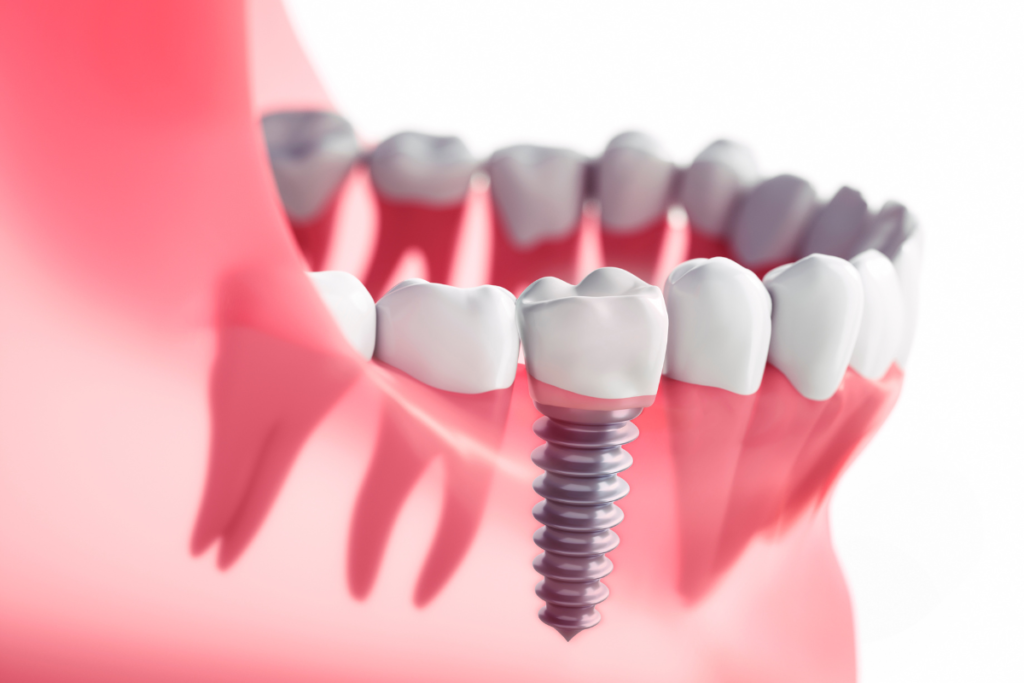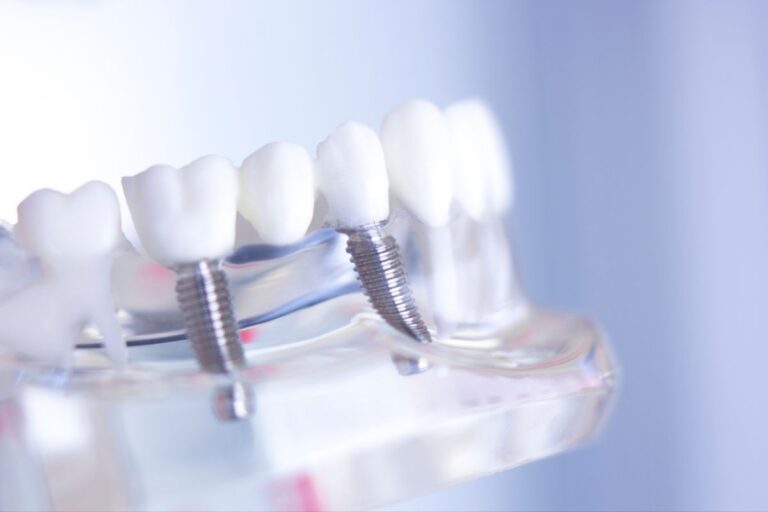Dental implants have revolutionized the field of dentistry by providing a long-lasting and effective solution for individuals who have lost one or more teeth. Unlike traditional dentures or bridges, dental implants offer a permanent and natural-looking replacement for missing teeth. In this article, we will explore what dental implants are, their benefits, the implantation process, and their maintenance.
Blog Topics : Dental Implants
ToggleWhat Are Dental Implants?
Dental implants are artificial tooth roots made of biocompatible materials such as titanium or zirconia. These implants are surgically placed into the jawbone to serve as a sturdy foundation for replacement teeth. Once the implant integrates with the surrounding bone, it becomes a permanent fixture in the patient’s mouth.

Benefits of Dental Implants
Improved Aesthetics: Dental implants closely resemble natural teeth, providing a lifelike appearance and restoring your smile’s beauty.
Enhanced Functionality: Implants function like natural teeth, allowing you to chew, speak, and bite with confidence and ease.
Longevity: With proper care, dental implants can last a lifetime, making them a cost-effective solution in the long run.
Improved Oral Health: Dental implants do not require the alteration of adjacent teeth, as is necessary with bridges, preserving the overall health of your remaining teeth.
The Dental Implantation Process
Consultation: The first step is a consultation with a dental implant specialist. During this appointment, your oral health will be assessed, and a treatment plan will be tailored to your specific needs.
Implant Placement: In the next phase, the dental implant is surgically inserted into the jawbone. This procedure is typically performed under local anesthesia, and in some cases, sedation may be used for patient comfort.
Osseointegration: After implant placement, a period of healing is necessary. During this time, the implant fuses with the surrounding bone through a process called osseointegration. This typically takes a few months.
Abutment Placement: Once osseointegration is complete, an abutment (a connector piece) is attached to the implant. This abutment will support the prosthetic tooth or crown.
Restoration: Finally, a custom-made crown is attached to the abutment, creating a natural-looking and functional replacement tooth.
Maintenance of Dental Implants
Maintaining your dental implants is crucial for their long-term success:
Oral Hygiene: Brush and floss regularly to keep the implant and surrounding gums clean. Dental check-ups and professional cleanings are also essential.
Avoid Smoking and Drinking Alcohol: Smoking can increase the risk of implant failure. Quitting smoking can significantly improve your implant’s chances of success. Excessive alcohol consumption can weaken your immune system, making it harder for your body to fight off infections around the implant.
Avoid Excessive Force: Avoid chewing on hard objects or using your implants to open packages, as this can damage them.
Regular Check-ups: Visit your dentist for regular check-ups to monitor the health of your implants and address any issues promptly.
How long do dental implants last?
With proper care and maintenance, dental implants can last a lifetime. They are known for their longevity and durability, making them a cost-effective long-term solution for tooth replacement.
Is the dental implant procedure painful?
During the implant placement surgery, local anesthesia is used to ensure you don’t feel pain. After the procedure, some discomfort is common, but it can be managed with over-the-counter pain medications.
What are All-on-4 dental implants, and how do they differ from traditional dental implants?
All-on-4 dental implants are designed for individuals with extensive tooth loss in one or both arches. This technique involves anchoring a full set of prosthetic teeth onto just four strategically placed dental implants. Traditional dental implants may require more implants and extensive surgery.
Dental implants have transformed the lives of countless individuals suffering from tooth loss, offering a permanent, natural-looking, and functional solution. With proper care and maintenance, dental implants can provide a lifetime of benefits, making them an excellent investment in your oral health and overall quality of life. If you are considering dental implants, consult with a dental implant specialist to determine if they are the right option for you.


